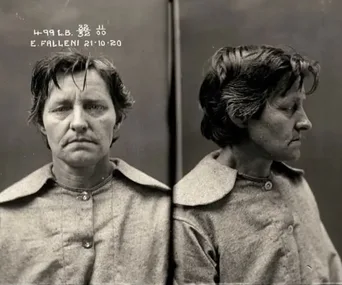EExclusive extract from The Scandal of the Season (Random House Australia) by Sophie Gee.
Arabella Fermor was looking at herself in the glass, considering on which side of her cheek the morning’s beauty patch should be placed. She stepped back so that Betty, her maid, could tighten the robings on her stays. Arabella’s lapdog, Shock, got up from his basket, gave himself a rousing shake, and trotted around to the other side of her bed. When Betty had made the last adjustment to her gown, Arabella picked the dog up and carried him down the stairs, leaving the room in disarray behind her. A footman gave Arabella her hooded mantle in the hall, and she wordlesly handed him Shock in return. Immediately he passed the animal on to another servant, and went to help Miss Fermor into the carriage.
Arabella, known to her friends as Bell, was blessed with an almost perfect face and figure — and had been told as much from the earliest age. But in spite of this, Arabella had not allowed her loveliness to be the ruin of her character. She had long known that she was very pretty, but that knowledge had not distorted her powers of perception or understanding, with the result that at the age of 22 she combined beauty and cleverness in almost equal parts.
She was well educated, having been provided as a child with a governess, and afterwards with some expensive years at a convent school in Paris. And yet it was not formal education that made Arabella remarkable. She was distinguished rather by her capacity for observation and judgement, and for these she relied not on books and learning but upon life itself. Here again Arabella had been lucky. Her parents had taken up residence in a town house in the smart London parish of St. James’s, and granted their eldest daughter as much access to life (at least as it was lived in this small corner of the world) as she ever could have wished for. Arabella had good manners, excellent conversation, and highly developed powers of social observation. She was, therefore, uniquely positioned to put her talents to the use for which they had been cultivated: the acquisition of a rich husband.
Arabella was in London when she received the letter from her cousin Teresa announcing that she and Martha were coming to town. Teresa and Arabella had been in Paris at the same time, and Teresa had greatly admired her cousin’s worldiness and sophistication. Back in England, they had continued to meet periodically, tied by bonds of family and religion, but they had never been intimate friends. Teresa spent almost all of her time with her sister, Martha; Arabella was several years older than her own sisters, and saw very little of them. Neither did Arabella spend much time in her parents’ company, busy as they were with social preoccupations of their own. She enjoyed being self-reliant, pursuing her life in London largely independently of her family and childhood friends. It had long been her intention to make a glittering match, to become the envy of the close-knit Catholic circles that she had always found so stultifying. But after two seasons in town she had met no one to inspire the kind of passion that she yearned to feel, and she had found herself withdrawing from romantic intimacies that she knew most girls would have been delighted to entertain. She had met rich men; she had met handsome men. But she had not fallen in love.
When Teresa’s letter arrived Arabella at first thought little of it, but as the days passed she found herself looking forward to her cousin’s arrival much more eagerly. In spite of her many diversions, in spite of her enviable independence, she had grown bored. Arabella did not imagine that Teresa herself would provide the variety and change that she sought, but it did occur to her that, in showing her cousin the town, she might encounter new scenes to refresh her world-weary gaze.
So it came about that on a Friday morning, when the Blount sisters had been in town for a few days, Arabella had dressed early and was stepping into her carriage, preparing to collect Teresa for a trip to the shops at the Royal Exchange.
The coach drew up outside the town house in King Street where the Blounts were staying, and after a minute or two Teresa came out of the house.
Arabella greeted her, kissing both cheeks.
“Hello Bell,” Teresa replied. “How glad I am to see you.” She looked at her cousin appraisingly. Arabella was just as handsome as ever, she was disgruntled to note.
Arabella saw the glint of envy in Teresa’s eye, and wished that she did not feel so gratified by it. “Where is Martha?” she asked.
“Abroad with our aunt and mother,” said Teresa. “They are gone to visit Mrs. Chesterton, exactly the sort of tiresome thing that Martha likes to do. Your gown is handsome, Bell,” she said. “Is it the one you wore at Mapledurham when I saw you last year?”
Arabella had noticed before that her cousin became competitive whenever she felt ill at ease.
“I haven’t had that gown for quite some time,” she answered. “This is another in a newer style, without flounces.” She straightened out the lace fringe of her sleeve. Better pay Teresa a compliment in return. “Your hair looks well, Teresa. I supposed that your aunt’s maid helped you put it up.”
“Not at all,” said Teresa. “Martha and I brought our maid to town.”
“Ah!” Arabella raised her chin in assent. That explained why her cousin’s hair had been done in such an old-fasioned style. She wondered whether she ought to point it out to her, delicately of course.
But the carriage turned from Cheapside into Cornhill, and both girls were distracted by the sight of the Exchange. Teresa forgot her envy and unease, and gave a gasp of excitement. “What a magnificent building!” she exclaimed. “I had quite forgotten.”
Their coach was dwarfed by the immense stone front of the façade, its high arcades and columns reaching skyward beside a great foral arch. The massive windows of the first floor stretched towards a noble balustrade, and high above the whole was the tiered clock tower, piercing the sky like the dome of a cathedral and chiming out the hour of noon across the city.
As Teresa swung the carriage door open, sound and smell assailed her forcefully. Here at last! In London, on a glorious morning, the whole visit stretching before her. She caught the jingle of the muffin man’s bell as he pushed through the crowd with a tray of hot cakes. A heavy thump as bales of cloth were thrown down from a cart. The stamp of hooves on the muddy straw when the carriages stopped, steam hissing off the horses’ backs. A constant shrill of whistles from messenger boys. She could smell chestnuts roasting and the acrid smoke of the braziers; the spice of warmed cider; the piercing stink of fresh dung. She stood on the step of the cab, her breath misting in the cold air as she took in the scene. Then she jumped down to the pavement, thrilled to be in town and determined to make the outing a success.
Book Group Questions
Was it love alone that made Arabella risk her reputation to have an affair with Lord Petre?
Did Lord Petre really love Arabella or was he always going to bow to his parent’s wishes?
Was Alexander Pope’s role in the affair entirely innocent?
Was being a woman then a lot more difficult than it is today?
Newsletter conversion description. Get the latest in your inbox.









.png?resize=380%2C285)
.jpg?resize=380%2C285)

















































